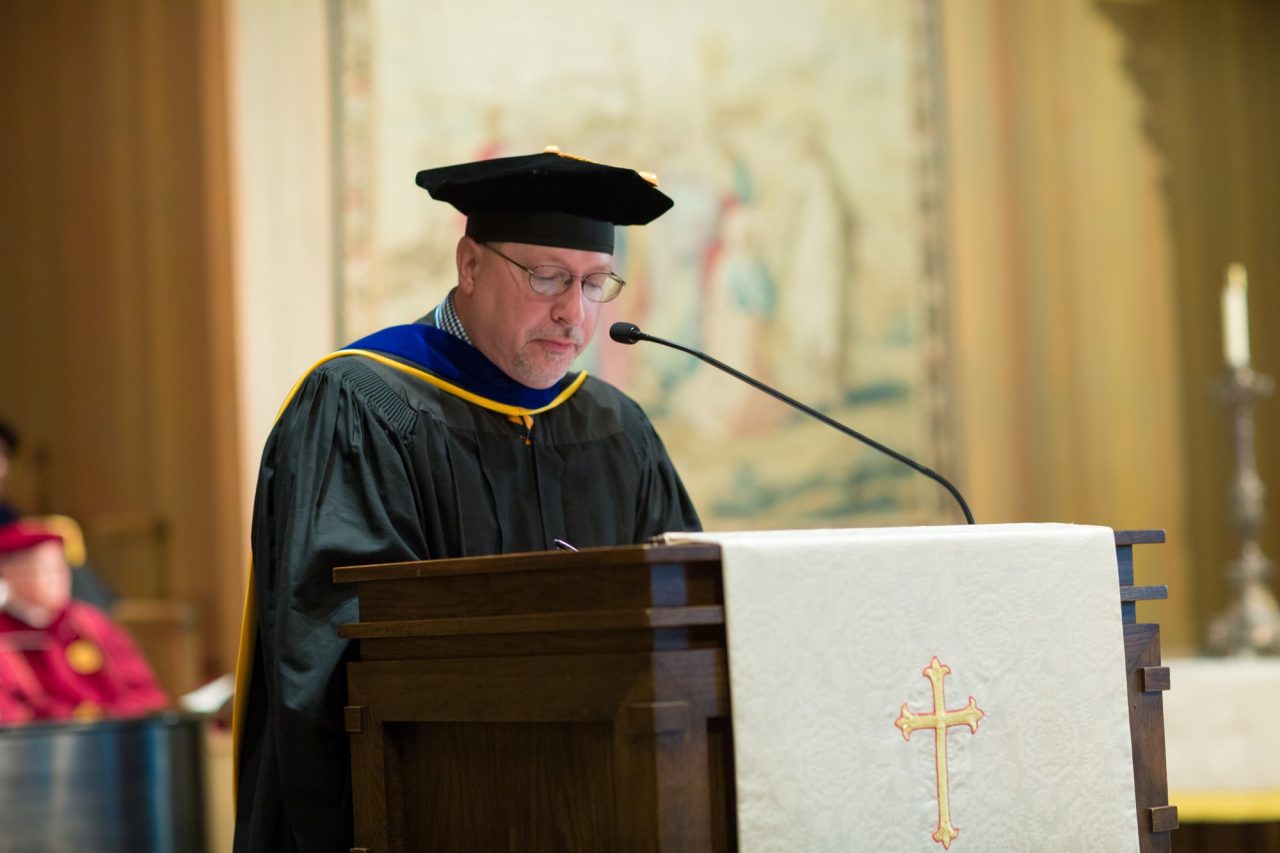photo provided by Trinity University
Every semester, fall or spring, Trinity’s graduating seniors receive their long awaited degrees in a commencement ceremony rife with reflective speeches and triumphant music. But this December, for the second semester in a row, the speeches will be pre-recorded, and the music will come through laptop speakers.
Madeleine Heliste, senior neuroscience major, was one of those seniors informed by email that the graduation ceremony this semester would be entirely virtual.
“Although expected, it was sad to receive the email,” Heliste said. “A small part of me was praying that, since December graduation is much smaller, we could do it in Laurie or the football field. However, it would be quite dangerous for families to travel and for everyone to gather safely, so I knew my hopes were probably too optimistic.”
The Commencement and Convocation Committee, co-chaired by Duane Coltharp, associate vice president for Academic Affairs, Dennis Ugolini, professor of physics and astronomy, and Bruce Bravo, senior director of conferences and auxiliary services, made an official recommendation to Danny Anderson, university president, last week to hold the December commencement ceremony virtually.
“We fundamentally have to focus on health and safety,” said Tess Coody-Anders, vice president for Strategic Communication and Marketing and acting Nerve Center head. “But we absolutely need and want to give people the opportunity to experience that moment where you feel yourself feted and graduated. I know we’ll work hard to try to achieve both those goals.”
The December commencement ceremony is going to be the same as the virtual graduation ceremony held for class of 2020 graduates in the spring.
“The students, degree candidates, families, faculty, they did appreciate that we had something” Coltharp said. “The [ceremony] itself is going to be almost identical.”
Like all graduations, the Virtual Conferral of Degrees — as the Commencement and Convocation Committee calls it — will begin with shorter, pre-recorded speeches reflecting on the achievements of the graduates. Following will be a virtual parade of the graduating students, with each student having a few seconds to be recognized.
Graduates have the opportunity to attach a photo or video alongside their names in the slideshow.
“One would have liked to be in person, but if that’s not going to be possible this was a pretty good substitute,” said Coltharp.
The May commencement ceremony was originally considered a placeholder until an in-person ceremony could be arranged in August. The summer’s COVID-19 spike, however, prompted Trinity to cancel the proposed ceremony.
“We have no idea when things are going to get back to normal, so we’re just not going to predict,” said Coltharp. “We hope that we’re able at some point to welcome back in-person and to do something, but that’s going to have to stay up in the air until we have some sense of when this all is going to be over.”
Special commencements, such as the De Colores ceremony that celebrates Latinx achievement, usually hold their ceremonies for all relevant graduates from the year in May and are on standby to make plans. Graduating students are usually allowed to invite as many people as they want to the ceremony, and with dozens of graduating students signing up each year, De Colores usually attracts 500-600 attendees.
“I look forward to planning De Colores this upcoming May and trying to reimagine what it will look like under the circumstances we are in,” Thomas Peña, junior business analytics & technology and finance double-major and Trinity University Latino Association president, said. “All Winter graduates have received their stoles and are excited to wear them with their families and friends at home. Because [of] COVID-19, we are trying to reimagine how to have De Colores to honor and celebrate the hard work of Latinx graduates.”
Though all parties involved admit that the virtual graduation ceremony is not ideal, not much more can be done given the circumstances.
“This is a tough time for everybody — the pandemic has been extraordinarily disruptive in all kinds of ways,” said Coltharp. “I think the university has figured out how to replicate or at least approximate the normal functions of a university. We can teach, we can learn, we can do ceremonies virtually, [but] what we can’t do is provide a true substitute at an emotional level for in-person interactions.”
Echoing Coltharp, seniors like Heliste are disappointed by the circumstances but still manage to find some measure of positivity in what’s going on.
“I wish Trinity could be the full and vibrant campus I was able to be a part of my first two and a half years,” said Heliste. “These last two semesters have been a new type of challenge, but I am grateful for my experiences before COVID and for how I have grown as a person and a student during these times.”
“Plus our dog can join in on the celebration now,” said Heliste.













